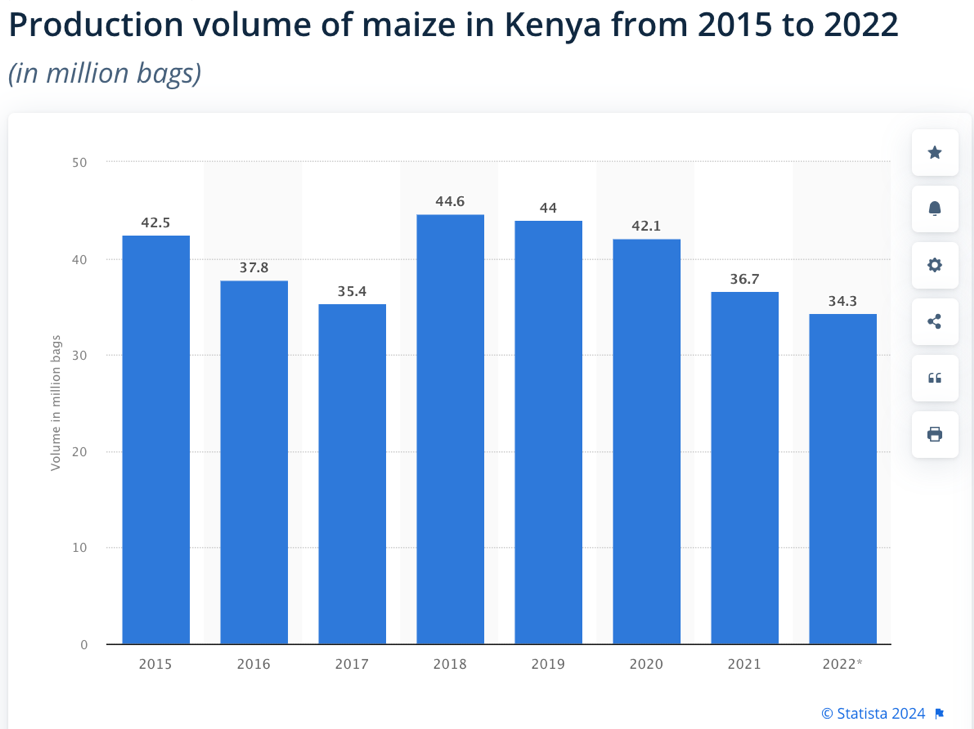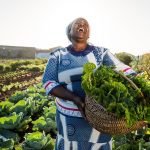
Introduction
Kenya, like many other African nations, has been grappling with chronic food shortages for years. The country has faced numerous instances of famine and struggles to meet the growing demand for staple crops such as wheat, maize, and rice. This persistent issue calls for innovative solutions to ensure food security for the nation’s burgeoning population. In this article, we explore the potential of mechanized farming as a transformative approach to alleviate Kenya’s food shortage crisis.
The Current State of Food Shortages in Kenya
Kenya has experienced several instances of food shortages, with devastating consequences for its citizens. The cyclical nature of droughts, erratic rainfall, and other climatic challenges has led to decreased agricultural productivity, affecting staple crops like maize, wheat, and rice. According to the Food and Agriculture Organization (FAO), Kenya has faced severe food crises, resulting in widespread hunger and malnutrition.
Statistics reveal that Kenya’s maize production has been inconsistent, contributing to food insecurity. The statistics show that between 2018 and 2022, maize production dropped by a whopping 23% , exacerbating the nation’s vulnerability to hunger. Similarly, wheat and rice production have struggled to meet the rising demand, further intensifying the need for effective agricultural solutions.
Mechanized Farming and Irrigation: A Game-Changer
One key solution to Kenya’s food shortage lies in the adoption of mechanized farming and improved irrigation practices. Mechanization enhances the efficiency of agricultural processes, from land preparation to harvesting. With the right machinery, farmers can cultivate larger areas of land in less time, significantly boosting overall productivity.
Additionally, irrigation systems play a crucial role in mitigating the impact of erratic rainfall. Drip irrigation, for example, ensures water efficiency by delivering water directly to the roots of crops, reducing wastage. The combination of mechanized farming and advanced irrigation techniques can increase the agricultural output, addressing the perennial food shortage.
Getting More Land Under Production
Improved mechanization not only speeds up the cultivation process but also enables farmers to bring more land under production. Tractors equipped with modern technology can cover larger areas efficiently, making it possible for farmers to diversify their crops and increase overall yield. This shift towards large-scale, mechanized farming is essential for meeting the food demands of Kenya’s growing population.
Effective Storage and Logistics
While increasing production is vital, proper storage and logistics are equally important to prevent post-harvest losses. Efficient silos and grain storage facilities can help preserve crops for extended periods, ensuring a stable food supply throughout the year. In this regard, organizations like EFKen play a pivotal role in supporting the agricultural value chain.
EFKen’s Role in Enhancing Food Security
EFKen stands as a crucial player in addressing Kenya’s food security challenges. By providing financial support for essential equipment in crop production, storage, value addition, and logistics, EFKen contributes to building a resilient agricultural sector. Farmers can access financing for tractors, silos, milk coolers, grain millers, lorries, buses, and other necessary machinery through eEFKen enabling them to modernize their operations.
Experts take on food security challenge in Kenya
Renowned scholars emphasize the significance of addressing food security challenges in Kenya through innovative approaches. Dr. Jane Nyambura, an agricultural economist, notes, “Mechanized farming is a key driver for transforming Kenya’s agricultural landscape. By adopting modern technologies and machinery, we can significantly increase productivity and break the cycle of food shortages.”
Dr. Samuel Kariuki, a climate scientist, adds, “Climate change poses a significant threat to food security in Kenya. Mechanized farming, coupled with climate-smart practices, is essential for building resilience in the agricultural sector and ensuring a stable food supply.”
Counties and Devolution in Enhancing Food Security
Devolution has empowered counties in Kenya to take charge of their agricultural development. Several counties are actively supporting mechanization initiatives to enhance food security. By investing in infrastructure, providing training, and offering financial incentives, counties are encouraging farmers to adopt modern farming practices. This localized approach is instrumental in addressing the unique challenges each region faces.
Conclusion
In conclusion, the perennial food shortage crisis in Kenya requires comprehensive and innovative solutions. Mechanized farming, coupled with improved irrigation practices, stands out as a game-changer in increasing agricultural productivity. EFfKen’s support in financing essential equipment and fostering the entire agricultural value chain plays a crucial role in transforming the sector. As counties embrace devolution, the synergy of local efforts with national initiatives holds the promise of a future where hunger is no longer a constant fear for the people of Kenya. Through collaborative efforts, we can pave the way for a more resilient and food-secure nation.




